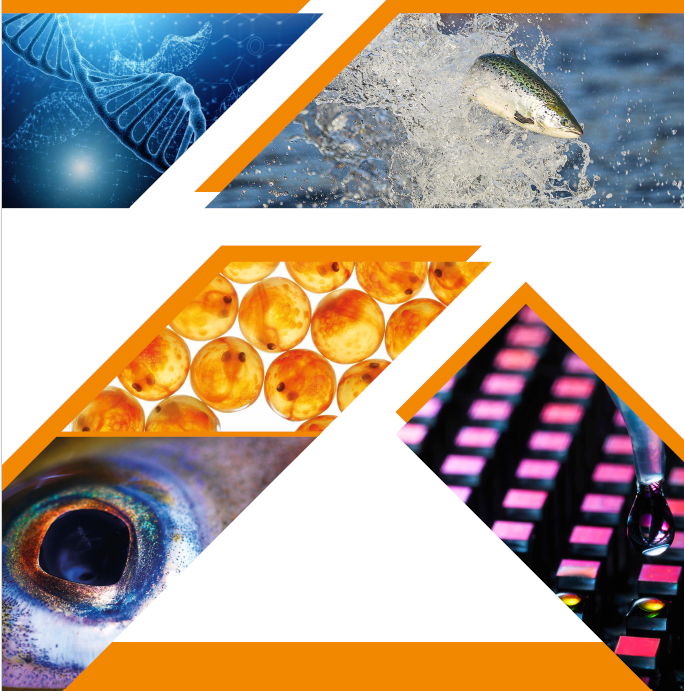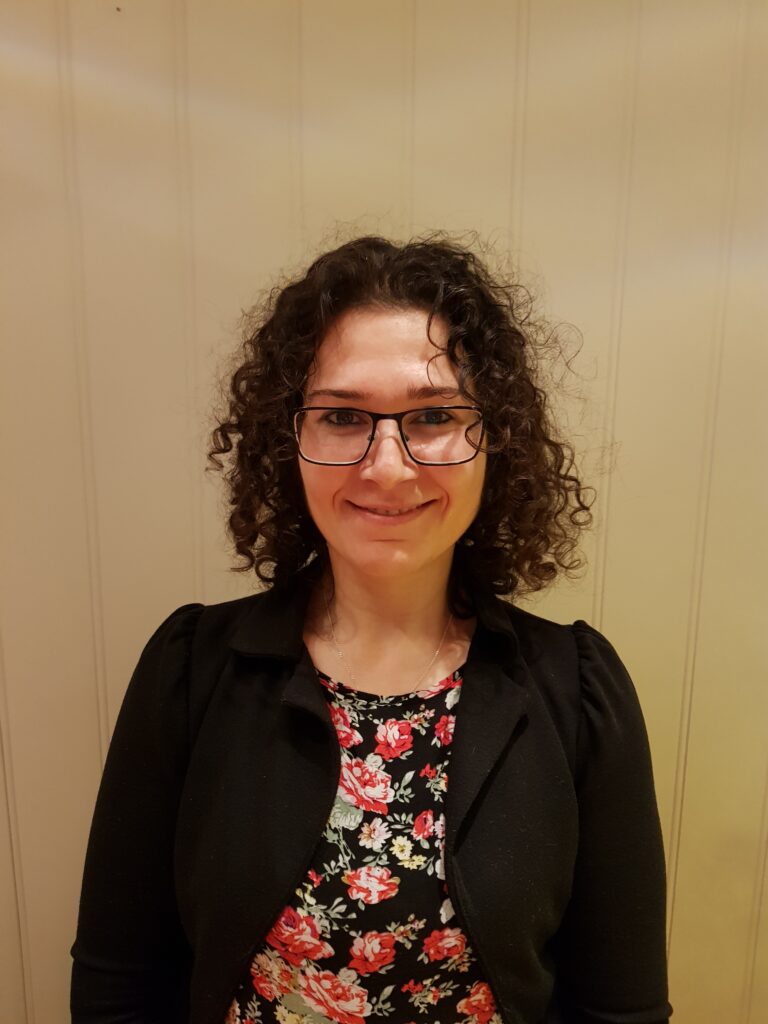A new story of perseverance, passion, and leadership at Benchmark Genetics.
Carolina Peters Muza is the Health and Quality Manager at Benchmark Genetics Chile. She has developed a successful career, contributing to progress towards an increasingly sustainable and responsible industry. Her family and friends are close to her heart, and in her free time, she enjoys reading, experimenting with creative cooking, singing to relax, and gardening, an activity that gives her a “sense of peace”. Carolina is a veterinarian from the Austral University of Chile (Universidad Austral de Chile) and a fish health expert, who has broken barriers and become a role model for women in the Chilean aquaculture industry. Her passion for the sea, innovative vision, and commitment to sustainability have led her to spearhead key projects and open the door for new generations.
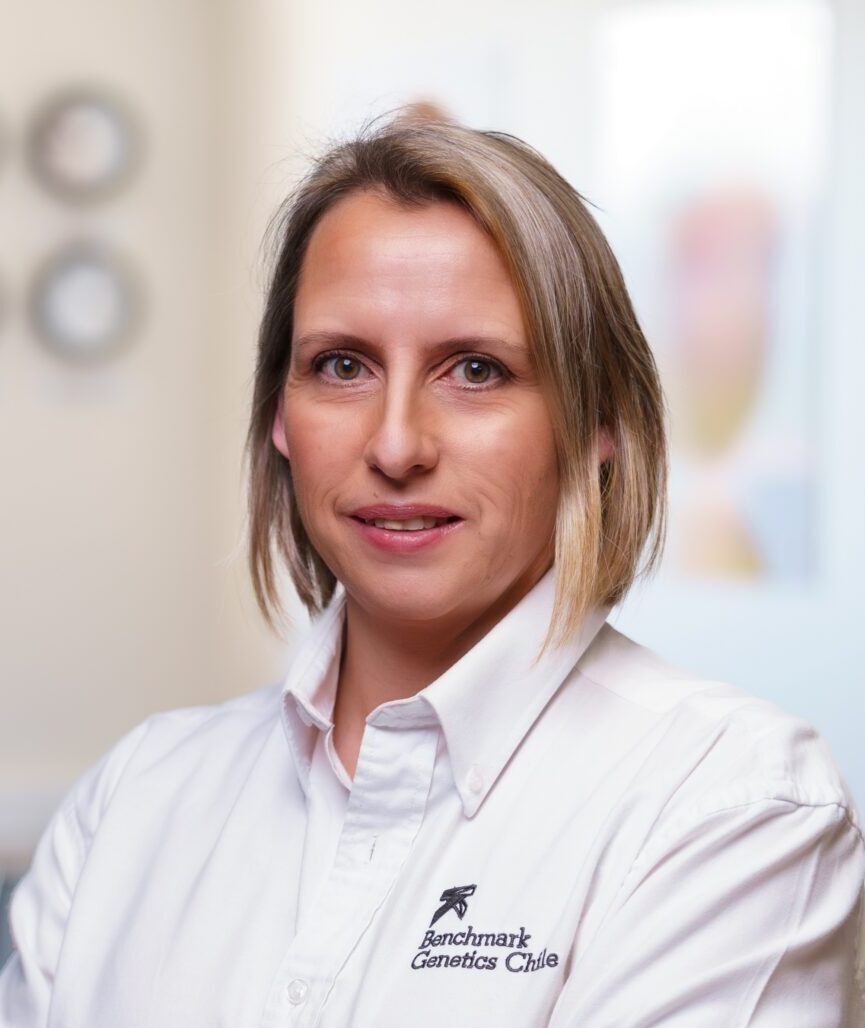
She was born in Santiago, Chile, and grew up in Marchigüe (“Clayey Land” or “Land of Bewitchment” in Mapudungún), a town in the country’s central zone. She decided to study in Valdivia and has since built both her personal and professional life in the south of the country.
With a solid scientific background, she currently holds the position of Health and Quality Manager at Benchmark Genetics Chile. In this conversation, she shares her 24 years of experience in the salmon farming industry and her views on the role of women in the aquaculture sector, as well as the challenges that, from her perspective, they must overcome to reach leadership positions. We invite you to read her inspiring story.
FORGING A SUCCESSFUL PROFESSIONAL CAREER
Your trajectory in the salmon farming industry is remarkable. How did your fascination for the sea begin, and what prompted you to dedicate yourself to this field?
From an early age, I knew that veterinary medicine was the profession that would make me happy. I grew up in the countryside, which sparked my interest in animals, nature, and biology. I fondly remember the documentaries I used to watch at the cinema, such as “The World at an Instant”, with famous biologists and zoologists. That’s where I met Jacques Cousteau and his legendary Calypso. Those fascinating images and stories consolidated my love for science and animal life.
How did you get involved in aquaculture, and what motivated you to develop professionally in the salmon industry?
My first approach to aquaculture was through my undergraduate thesis, where I focused on characterizing renal lesions in fish at the histopathological level. At the same time, before obtaining my degree, I worked as a sampler in broodstock screening during the spawning season at Fundación Chile. After graduating, I could continue at the same institution, where I worked as a veterinarian in technical health assistance. It was at this time I began my professional career, covering the various stages of aquaculture production, both in freshwater (open flow, lake, and RAS) and seawater, working with different salmonid species, including Atlantic salmon, Coho salmon, and trout.
Afterward, I worked in the laboratory ADL Diagnostic Chile, providing technical assistance to production companies. From there, I joined Salmones Camanchaca where I worked for 13 years in the Health Department, in charge of freshwater production, a role that further strengthened my fish health experience.
The salmon farming industry has allowed me to apply my knowledge in a dynamic and challenging sector where science and technology come together to produce food responsibly.
I joined Benchmark Genetics Chile in October 2021, attracted by the opportunity to deepen my knowledge in salmon reproduction and genetics and the challenge of leading on quality production issues. I was also motivated to bring my expertise to implement a disease-free health compartment.
Being part of a global company has been an incredible journey, working alongside professionals with impressive expertise and exceptional scientists dedicated to R&D and innovation. I knew most of my colleagues in Chile, a team that stands out for its human and professional quality, and it’s something I deeply value.
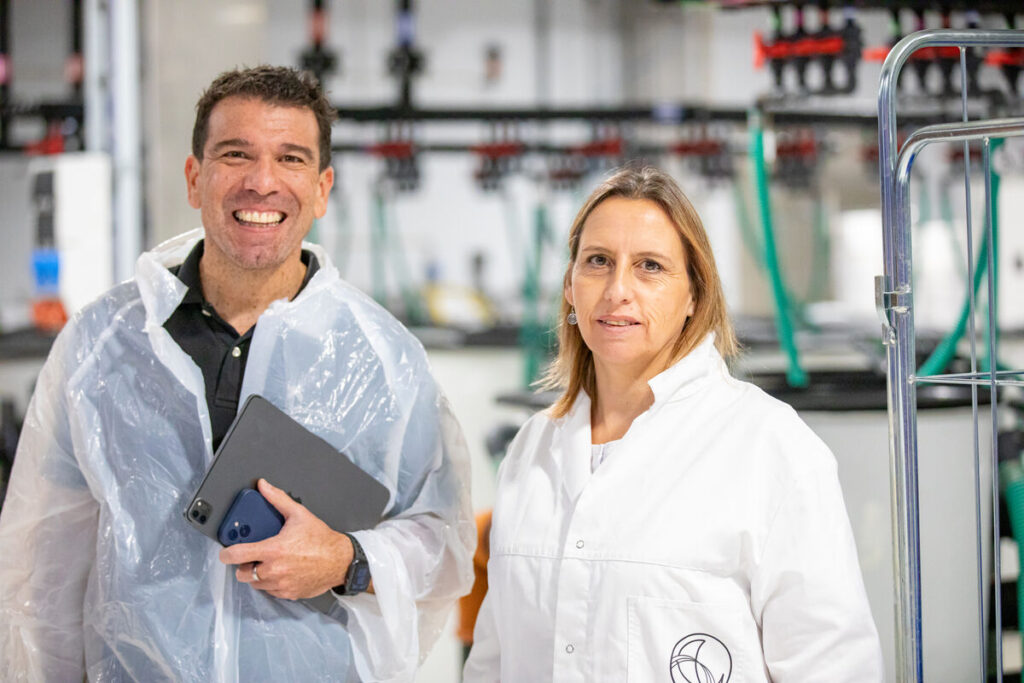
What is your main role at Benchmark Genetics Chile, and what are you most passionate about working there?
I am responsible for ensuring the fish health at our production plants, and the quality of our products and processes. Besides, I have taken on a new challenge as KAM (Key Account Manager), which motivates me enormously. This role allows me to maintain a direct connection with our customer’s requirements and to follow up more closely on the salmon eggs after deliveries at their facilities, which allows me to ensure that we meet their expectations and needs.
From your point of view, what are the main challenges facing aquaculture today, especially salmon farming, and how can genetics help to solve them?
Currently, the salmon industry faces several challenges, both in terms of fish health and environmental aspects. One of the main fish health challenges is the control of sea lice, which continues to be of great concern. In addition, climate change is generating temperature variations and affecting both the quantity and quality of water available for salmon farming. For this, it is essential to have a phenotype of robust individuals capable of adapting to and resisting these adverse factors. In this context, genetics plays a key role in the continuous reproduction of fish with greater potential in phenotypes associated with producing more resilient fish better prepared to face changing conditions and health risks.
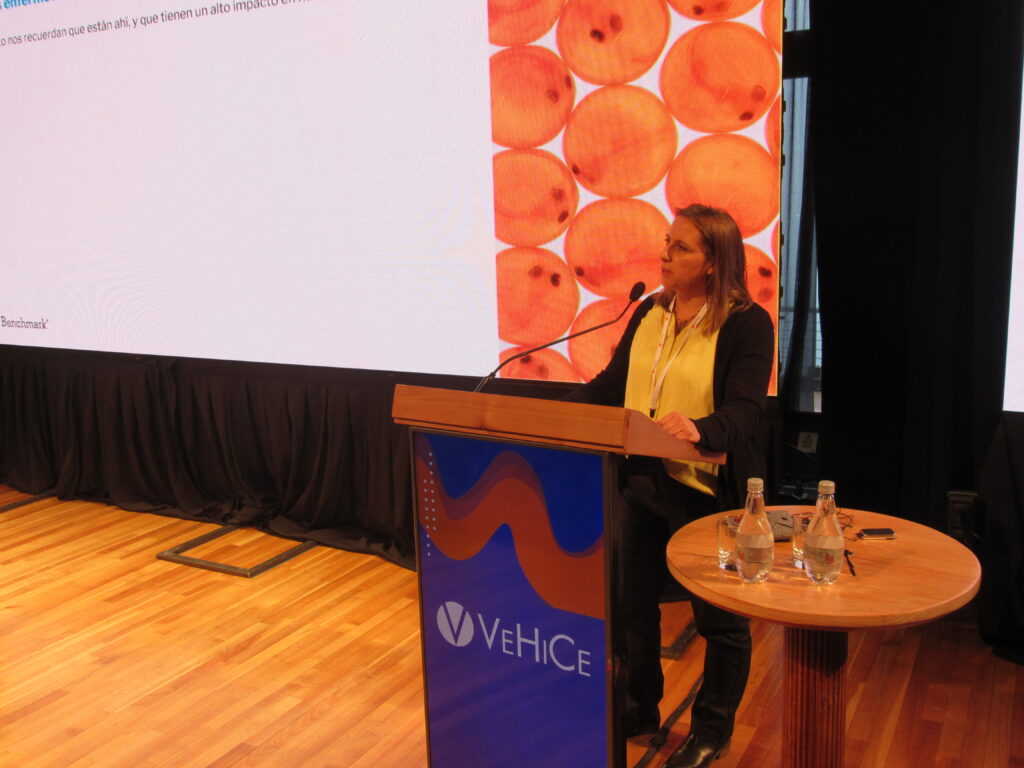
One of the focuses of your work is to ensure the quality and biosecurity of the eggs offered by Benchmark Genetics Chile. How is this achieved?
The most important thing is to have a multidisciplinary and enthusiastic team that is committed to producing under the highest quality and biosecurity standards. From there, it is essential to know each part of the process and to be able to identify critical points through risk assessments, audits, analysis of causes, and recording of deviations. We focus on continuous improvement and especially value our customer’s feedback, which allows us to adjust and optimize our procedures constantly.
How do you envision the future role of genetics for a more sustainable aquaculture?
The role of genetics in aquaculture is fundamental to moving towards more sustainable practices. Through genetic selection, we can develop aquaculture species that are more resistant to disease, with greater resource efficiency and better growth performance, reducing dependence on medicines and environmental impact.
In the future, we will probably see advances in gene editing and technologies that will enable us to more accurately identify organisms adapted to changing environmental conditions. While the potential is vast, it is essential to move forward ethically and responsibly, ensuring that the benefits of these innovations contribute to the sustainability of ecosystems and the well-being of communities and the aquaculture industry at large. Currently, at Benchmark Genetics Chile we are conducting experimental challenges to identify families resistant to SRS, IPN, BKD, and sea lice. Globally, we are working on developing technologies and protocols to produce sterile salmon at a commercial scale, which will reduce the risk of early maturation and eventual unwanted reproduction.
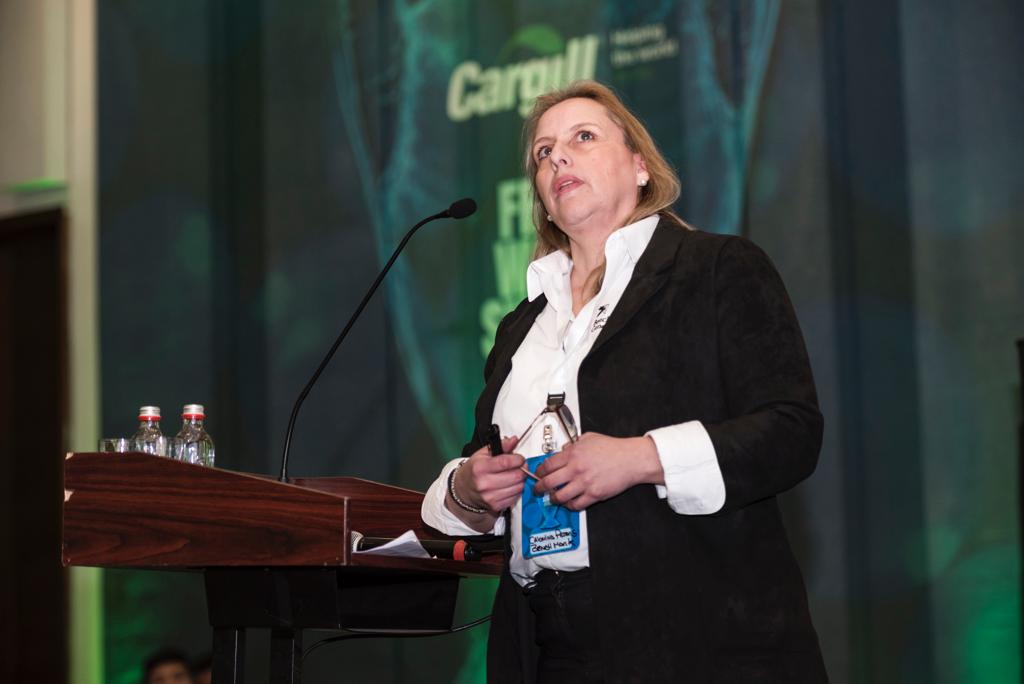
What personal mark would you like to leave in the aquaculture world?
As ambitious as it sounds, I aspire to leave a lasting impact on aquaculture by promoting sustainable and responsible practices. I want to ensure we learn from past challenges, such as the ISA virus crisis, and work towards a brighter future. My goal is to contribute to developing more efficient aquaculture systems by leveraging expertise in genetics and health to enhance the robustness and productivity of farmed species—all while safeguarding biodiversity and preserving ecosystem well-being.
In addition, I would like to be part of the development of multidisciplinary teams that drive a culture of continuous improvement and collaboration, generating innovative solutions that respond to current and future challenges in a constantly evolving industry.
WOMEN IN SALMON FARMING
Although Chilean companies have made efforts to “balance” the scales in terms of gender equality and equity by implementing a series of policies, there is still a long way to go.
In this regard, what do you think of the role played by women in this industry? What has been their primary contribution to the sector?
Women play a fundamental role throughout the entire value chain of the aquaculture industry, contributing not only technical and scientific knowledge, but also an inclusive, empathetic, creative, and collaborative perspective, driving the aquaculture sector’s growth. We have demonstrated leadership in key areas such as research, innovation, production, and management, building committed and motivated work teams and promoting initiatives that contribute significantly to the sustainability and efficiency of processes.
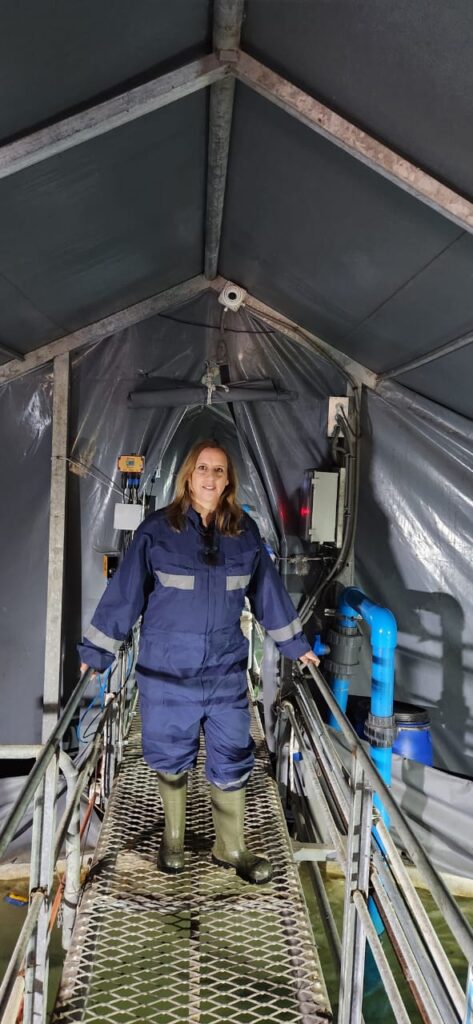
Are there any pending challenges in this area?
The presence of women in strategic roles in local and global aquaculture has enriched decision-making, providing innovative and holistic approaches and an integral vision that benefits the entire industry. Although significant progress has been made, it is essential to continue promoting equal opportunities and reducing the paradigms that hinder women’s access to leadership positions. Women are always destined to play a multidimensional role in society, so as a country, we still need to resolve some issues.
What advice would you give young women interested in science and the salmon farming industry?
Don’t be afraid of challenges. Keep learning, train continuously, and listen to those with more experience. In this industry, there are inspiring women who have paved the way for others to thrive. Aquaculture needs your talent, ideas, and vision for the future to grow sustainably. Pursue your dreams with passion and determination but also with objectivity, hard work, and responsibility.
I am optimistic that women’s participation in aquaculture will one day be full and equal. Our leadership is essential to tackling future challenges, including sustainability, food security, climate change, and the development of our communities.



